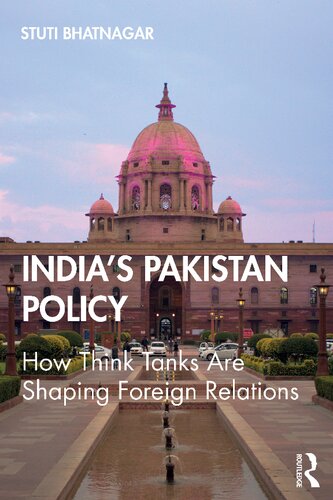

Most ebook files are in PDF format, so you can easily read them using various software such as Foxit Reader or directly on the Google Chrome browser.
Some ebook files are released by publishers in other formats such as .awz, .mobi, .epub, .fb2, etc. You may need to install specific software to read these formats on mobile/PC, such as Calibre.
Please read the tutorial at this link: https://ebookbell.com/faq
We offer FREE conversion to the popular formats you request; however, this may take some time. Therefore, right after payment, please email us, and we will try to provide the service as quickly as possible.
For some exceptional file formats or broken links (if any), please refrain from opening any disputes. Instead, email us first, and we will try to assist within a maximum of 6 hours.
EbookBell Team

0.0
0 reviewsThis book critically examines the role of think tanks as foreign policy actors. It looks at the origins and development of foreign policy think tanks in India and their changing relevance and position as agents within the policy-making process.
The book uses a comparative framework and explores the research discourse of prominent Indian think tanks, particularly on the India–Pakistan dispute, and offers unique insights and perspectives on their research design and methodology. It draws attention to the policy discourse of think tanks during the Composite Dialogue peace process between India and Pakistan and the subsequent support from the government which further expanded their role. One of the first books to offer empirical analyses into the role of these organisations in India, this book highlights the relevance of and the crucial role that these institutions have played as non-state policy actors.
Insightful and topical, this book will be of interest to researchers focused on international relations, foreign policy analysis and South Asian politics. It would also be a good resource for students interested in a theoretical understanding of foreign policy institutions in general and Indian foreign policy in particular.